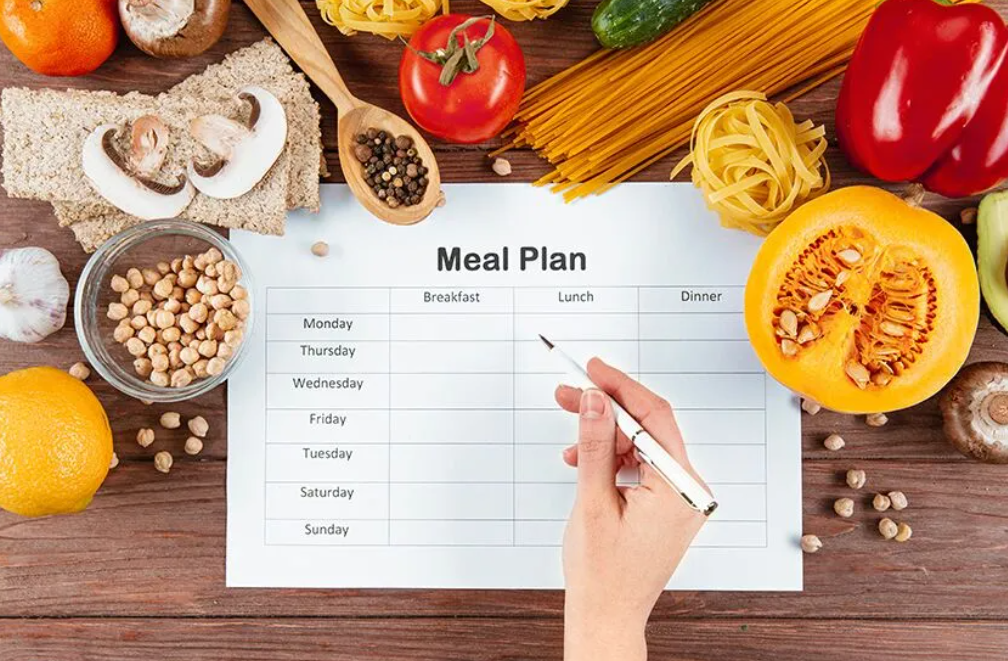Eat plan or meal plan

Diet plan or meal plan for fitness involves making nutritious food choices that support your physical activity, help you reach your fitness goals, and promote overall health. Here are some general guidelines to consider:
Balanced Diet: Aim for a balanced diet that includes a variety of whole foods from all food groups. This includes fruits, vegetables, lean proteins, whole grains, and healthy fats.
Portion Control: Pay attention to portion sizes to ensure you're not overeating or under-eating. It's important to consume enough calories to fuel your workouts and daily activities.
Protein: Protein is essential for muscle repair and growth. Include lean sources like poultry, fish, lean meats, tofu, beans, and legumes.
Carbohydrates: Carbohydrates are the body's primary source of energy, especially during high-intensity workouts. Opt for complex carbs like whole grains, fruits, and vegetables.
Healthy Fats: Incorporate sources of healthy fats like avocados, nuts, seeds, and olive oil. They provide long-lasting energy and support various bodily functions.
Hydration: Staying properly hydrated is crucial for overall health and athletic performance. Water is the best choice, but you can also include herbal teas and electrolyte-rich beverages.
Pre-Workout Nutrition: Consume a balanced meal or snack with a combination of carbs and protein 1-2 hours before a workout to provide energy and support muscle function.
Post-Workout Nutrition: After exercise, focus on replenishing glycogen stores and aiding muscle recovery by consuming a combination of protein and carbohydrates. This can be in the form of a balanced meal or a snack like a protein shake.
Nutrient Timing: Eating smaller, balanced meals every 3-4 hours can help maintain steady energy levels throughout the day.
Avoid Processed Foods and Sugars: Minimize the intake of processed foods, sugary snacks, and sugary drinks. These can lead to energy spikes and crashes.
Vitamins and Minerals: Ensure you're getting a variety of vitamins and minerals through a diverse diet or consider supplementation if advised by a healthcare professional.
Listen to Your Body: Pay attention to hunger and fullness cues. Eating intuitively can help you maintain a healthy relationship with food.
Consistency: Consistency in your diet and exercise routine is key to seeing progress in your fitness goals.
Consult a Professional: If you have specific fitness goals, dietary restrictions, or health concerns, it's a good idea to consult a registered dietitian or nutritionist for personalized advice.
Remember, individual dietary needs can vary widely based on factors like age, gender, activity level, and specific fitness goals. It's important to tailor your nutrition plan to your unique circumstances.
